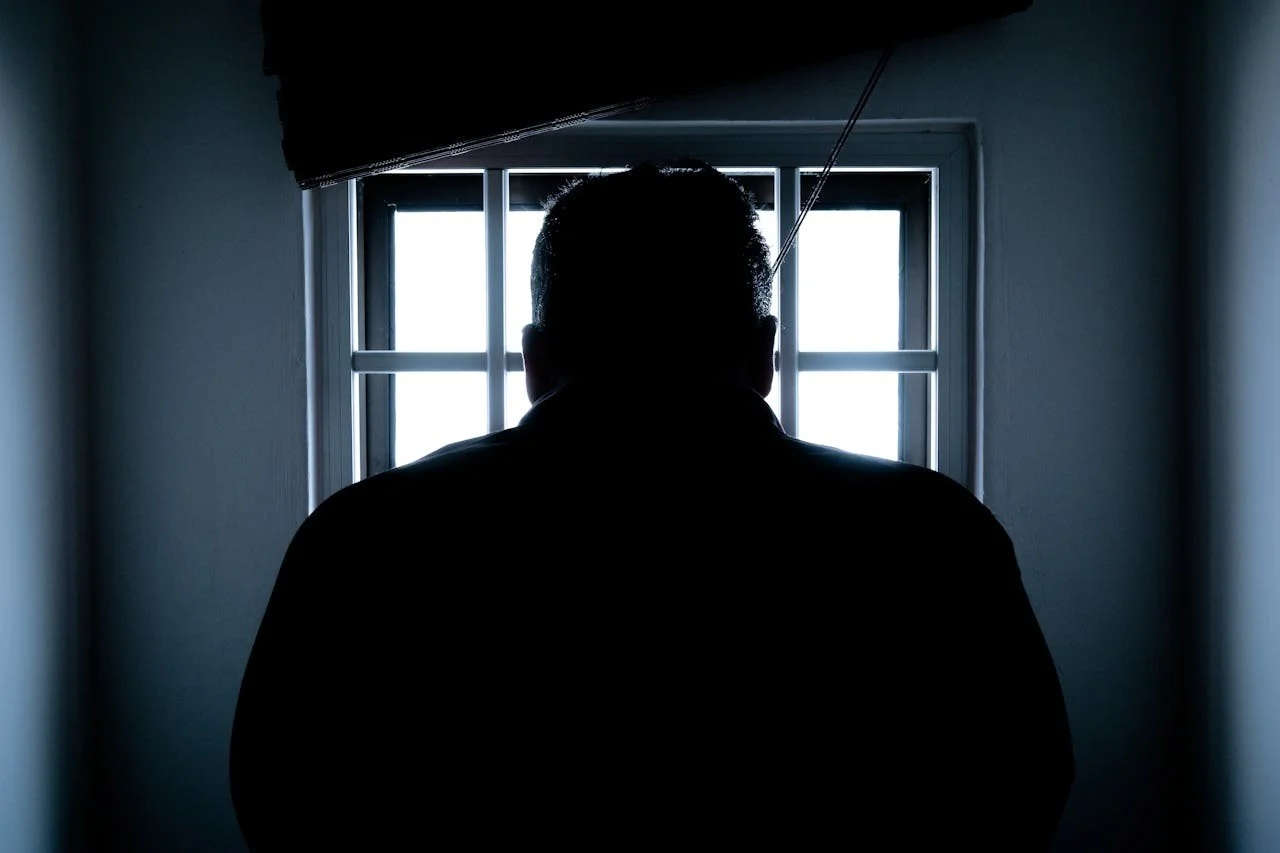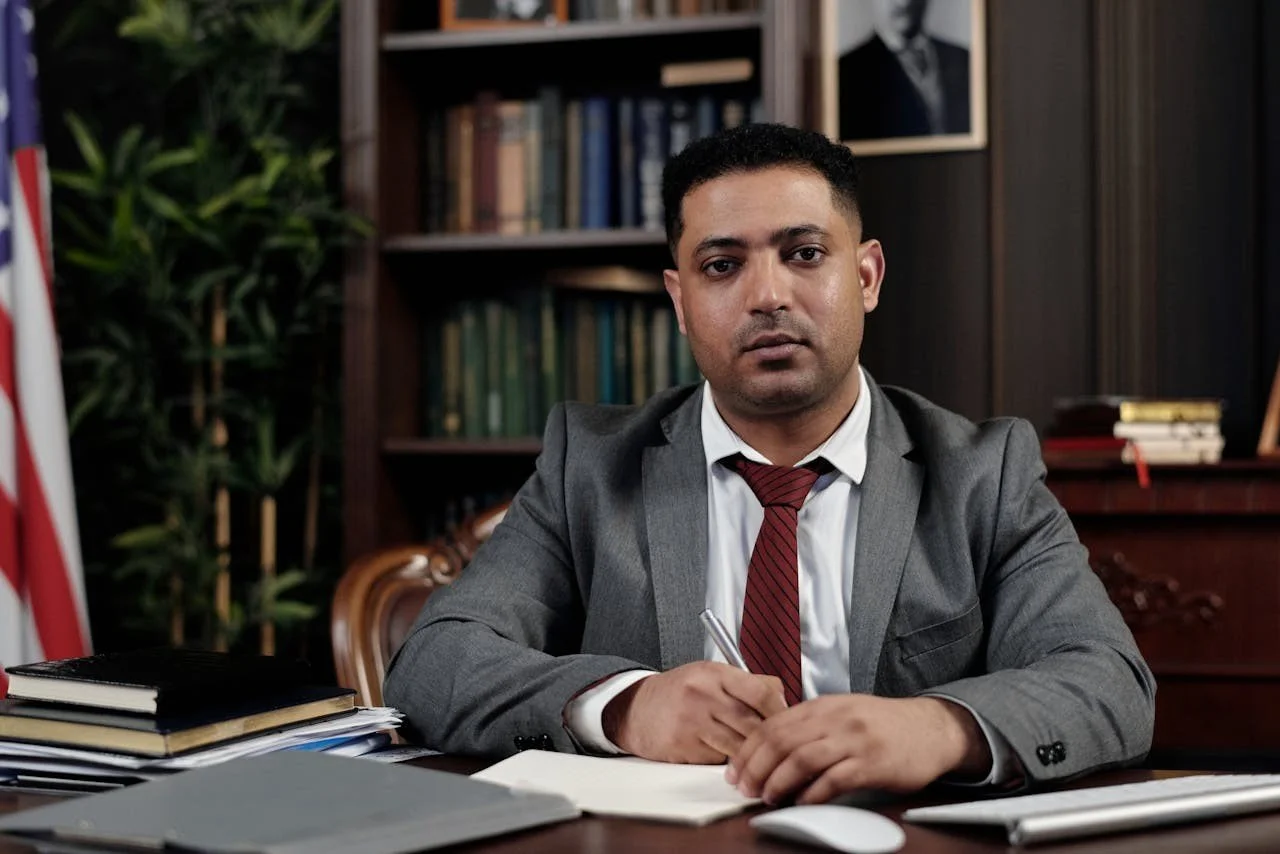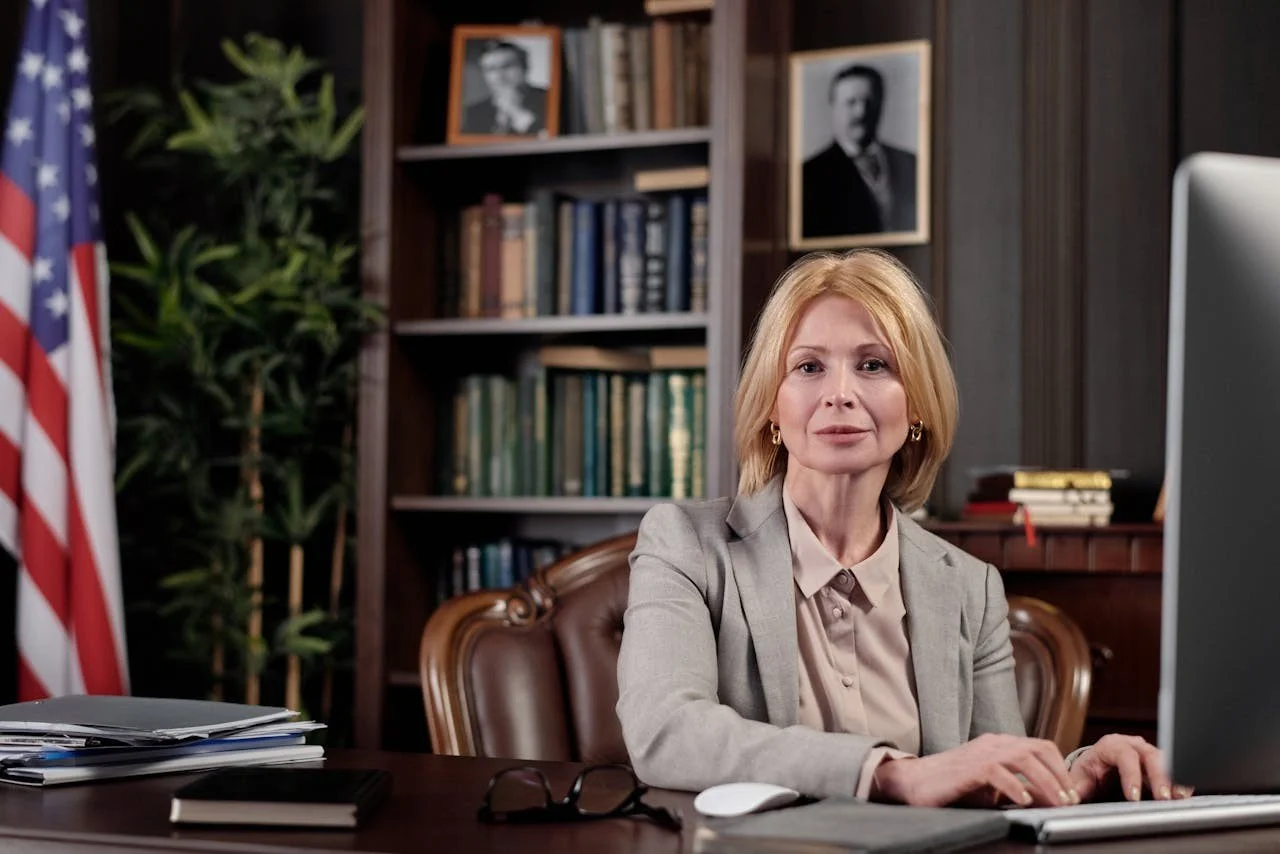Why I Left My Successful Law Practice to Help Elite Attorneys Find Freedom
The Courthouse Bathroom Moment That Changed My Life Forever
I'm staring at myself in the courthouse bathroom mirror, and my hands won't stop shaking. My stomach is in knots. I'm adjusting my tie for what feels like the hundredth time, and I'm about to walk into the biggest trial of my career.
Here's the crazy part—I'd graduated at the top of my law school class, clerked for a federal judge, and built a successful practice worth over $2 million. By every external measure, I was living the dream. So why did I feel like I was dying inside?
That bathroom mirror moment became the catalyst for everything I do today as a coach for elite attorneys. After four decades of practicing law, including 30 years as a managing partner, I discovered something that shocked me: the most successful lawyers often struggle with challenges that have nothing to do with legal skills and everything to do with what's happening inside their minds and hearts.
Maybe you recognize this feeling. You've achieved everything you thought you wanted, but something still feels missing. If so, I want to share my deeply personal journey from that terrified lawyer in the courthouse bathroom to someone who now helps other high-achieving attorneys find the freedom and fulfillment they deserve—without sacrificing the success they've worked so hard to build.
The Pattern Starts Early
Sometimes the seeds of our greatest calling are planted in our most painful moments. For me, those seeds were planted during a childhood that taught me some hard lessons about fitting in, standing out, and the exhausting pursuit of perfection.
I was that kid—you know the one. Overweight, thick glasses, brilliant in school, but completely lost on the playground. While other kids were trading baseball cards, I was buried in books. While they were playing sports, I was getting called names like "Arnold" and "Pugsley" by the bullies.
Here's what no one tells you about being the "smart kid"—it can make you a target. I learned early that academic success could protect me from some criticism, but it couldn't protect me from the profound loneliness of feeling different, of not belonging.
Those painful childhood experiences planted a seed that would grow into something that both saved and nearly destroyed me: perfectionism. I became convinced that if I could excel in everything—grades, behavior, and later, legal work—I could finally earn the acceptance and respect I craved.
By the time I graduated from high school (ranked #1), then college (also #1), and then law school (again, #1), I thought I'd figured out the formula. Success would be my armor against criticism, rejection, and that terrible feeling of not being enough.
Little did I know that this armor would eventually become a prison.
When Success Becomes a Prison
After my federal clerkship, I joined Huesman, Jones, and Miles in 1982. Within three years, I made partner. On paper, I was killing it. But inside? That scared kid from the playground was still running the show, just in a more expensive suit.
I was blessed to work alongside two extraordinary mentors. Dick Lerch taught me that you could be brilliant and kind, successful and humble. Joe Huesman, a combat veteran from Korea, showed me what real courage looked like—and that sometimes being a good lawyer means standing alone for what's right.
When I became managing partner, I thought I'd finally "made it." But here's what nobody tells you about success in the legal profession—the higher you climb, the heavier the weight becomes. Suddenly, it wasn't just my career on the line; it was the careers and families of everyone who worked with me.
My specialty became transportation law—representing trucking companies in federal court cases with millions of dollars at stake. Every case felt like a career-defining moment. The pressure was constant, the stakes were enormous, and the responsibility was crushing.
Like many successful professionals, I developed what I thought was a harmless way to unwind after those long days at the office. A drink or two to take the edge off. It was social, it was normal, it was... until it wasn't.
Somewhere along the way, what started as a choice became a compulsion. I'd promise myself one drink and have many more. I'd promise myself no drinks and find myself reaching for the bottle anyway. The control I prided myself on in every other area of my life had completely abandoned me here.
The most painful part wasn't the drinking itself—it was the lying to my family, to myself, to everyone around me. I was maintaining this successful professional facade while slowly drowning inside. The perfectionist in me couldn't admit that something was wrong, so I just kept pretending everything was fine.
The moment that changed everything happened at a family party. I had what I thought was a deep, meaningful conversation with my 15-year-old goddaughter. The next morning, I couldn't remember a word of it. My first blackout scared me in a way that nothing else had—because I realized that the mind I'd always relied on, the sharp legal intellect that defined me, was no longer under my control.
The Transformation That Changed Everything
Walking into my first recovery meeting felt like the hardest thing I'd ever done. Here I was, this successful attorney, admitting that I was powerless over alcohol. But you know what I found there? Hope. Real, authentic hope from people who had walked this path before me.
Recovery taught me something that twenty years of legal success hadn't: the power of being real. For the first time in my life, I didn't have to pretend to be perfect. I could be struggling, scared, uncertain—and still be worthy of help and support.
Shortly after entering recovery, I became involved with Maryland's Lawyers' Assistance Program. For about twenty years, I chaired this program in my area, working with attorneys struggling with addiction, depression, and other mental health challenges.
Here's what I discovered that would shape everything I do today: Many of the lawyers who ended up in crisis shared similar traits—perfectionism, people-pleasing, fear of failure, and impostor syndrome. The same internal struggles that had driven my own addiction were showing up in attorney after attorney.
But I also witnessed miracles. Lawyers who had lost everything—their licenses, their practices, their families—finding their way back to meaningful, fulfilling lives. It was through this service that I discovered my true calling: helping attorneys find freedom not just from addiction, but from all the internal prisons that keep us from being our best selves.
When my wife Brenda and I moved to Pinehurst, North Carolina, it wasn't just a change of address—it was a change of heart. For the first time in decades, I had space to breathe, to think, to really examine what brought meaning to my life.
Here's what shocked me during that period of reflection: all those years of chasing external validation, of building the perfect practice, of trying to prove my worth through achievements—none of that had brought me the deep satisfaction I found in those quiet moments helping a struggling attorney find hope.
The more I reflected on my career, the more I realized that my favorite moments hadn't been winning big cases or closing essential deals. They'd been those conversations with younger lawyers, those moments when I could share hard-won wisdom that might help someone avoid the mistakes I'd made.
After thirty years of building what appeared to be the perfect practice, I made a decision that surprised everyone—including myself. I stepped away from active practice to dedicate my life to something that had become far more important to me: helping other lawyers find the freedom I'd discovered.
What I See in Attorneys Today
If you're like most successful attorneys I work with, you might be thinking, "That's a nice story, Gary, but my situation is different." Let me share what I actually see when I work with attorneys earning $300K+, managing partners running thriving firms, and elite trial lawyers with national reputations.
You've achieved everything they said would make you happy, but you feel trapped by your own success. You're working 80-hour weeks, not because you have to anymore, but because you don't know how to stop. Your identity has become so closely tied to being "the hardest-working lawyer" that you're afraid of what would happen if you slowed down.
Perhaps you've experienced this feeling: You should be grateful for your success, but you're feeling miserable. You lie awake at 3 AM thinking about cases, client demands, and partnership pressures. You've missed more family dinners than you can count, and your kids have stopped asking when you'll be home.
Here's what breaks my heart most: I see brilliant lawyers destroying themselves in their quest for perfection in everything. They're sacrificing their health and relationships, all while feeling like they're never doing enough. This suffering is unnecessary because I know there's another way.
One of my clients, Sarah (not her real name), came to me after making equity partner at a prestigious firm. She was earning $450K, had the corner office, and everyone told her she'd "made it." But she was having panic attacks before client meetings and couldn't remember the last time she felt genuinely happy. "I worked so hard to get here," she told me, "but I feel like I'm dying inside."
Through our work together, Sarah learned to separate her worth from her work performance. She developed what I call "Internal Authority"—making decisions based on her own values and competence rather than constantly seeking external validation. Today, she remains an excellent attorney, but she practices with confidence rather than fear. She takes real vacations. She's present for her family. And her clients notice the difference—they tell her she seems more confident and decisive than ever.
How Change Actually Happens
You may wonder, "How does this transformation actually work?" Let me pull back the curtain and share what real change looks like for the attorneys I work with.
First, we create a safe space for open and honest communication. The legal profession trains us to conceal our weaknesses and project confidence at all times. But here's the paradox: real strength comes from acknowledging our struggles and getting appropriate help. When a managing partner earning $750K tells me he feels like a fraud, I can share my own imposter syndrome moments from my federal court days. Shared experience creates trust in a way that textbook knowledge never can.
I don't offer generic "work-life balance" advice because I know it doesn't work for elite attorneys. Instead, I offer targeted strategies for navigating the unique pressures of high-stakes legal practice while preserving personal well-being.
One of the most powerful concepts I teach is developing Internal Authority—making decisions based on your own values, preparation, and competence rather than constantly seeking external validation. This shift transforms how attorneys approach everything from client relationships to courtroom performance.
What does freedom actually look like for a successful attorney? It's not about working less—it's about working from choice rather than compulsion. It's having the confidence to set boundaries that actually improve your client service. It's being fully present when you're with family instead of constantly thinking about work. It's sleeping through the night because you've learned to trust your preparation and competence.
My client Michael, a managing partner at his firm, used to check emails until midnight and wake up at 4 AM with anxiety. Through our work together, he learned to establish "sacred boundaries"—times when he was completely unavailable except for true emergencies. His initial fear? That clients would fire him. The reality? His clients respected him more because he embodied the kind of balanced success they aspired to in their own lives. His leadership became more effective because he was operating from rest rather than exhaustion.
Your Invitation to Freedom
If you're reading this and recognizing yourself in my story—the perfectionism, the people-pleasing, the success that feels hollow—I want you to know that you're not alone. The challenges you're facing are real, but so are the solutions.
Every challenge you've faced, every mistake you've made, every moment of doubt you've experienced has prepared you for something greater. Your struggles don't disqualify you from success—they can become the foundation for authentic, sustainable achievement.
You've invested too much time, energy, and resources building your career to let internal struggles undermine your success. The investment in your own growth and well-being isn't a luxury—it's a necessity. Your transformation doesn't just impact you—it affects everyone around you. Your family deserves the best version of you. Your clients deserve an attorney who practices from a position of strength rather than fear. Your profession needs leaders who model authentic success.
The gap between where you are and where you want to be isn't as wide as it might seem. With the proper support, tools, and commitment, the transformation can begin immediately.
The Journey Continues
The courthouse bathroom moment that started this story—that moment of fear and anxiety before my first solo trial—taught me something profound: our greatest challenges often become our greatest gifts when we're willing to face them honestly and get appropriate help.
Every struggle I've shared with you—the childhood bullying, the perfectionism, the addiction, the professional pressures—has become part of what allows me to help other attorneys find freedom in their careers. The pain had purpose, even when I couldn't see it at the time.
Today, I wake up every morning grateful for the opportunity to do this work. When I get an email from an attorney who's rediscovered their passion for law, when I see a managing partner learn to lead from strength rather than fear, when I witness a senior attorney successfully transition into the next phase of their life—these moments remind me why I left my practice to do this work.
The legal profession needs what you have to offer, but it needs you to offer it from a place of authenticity rather than anxiety, from strength rather than desperation, from freedom rather than fear.
Your journey toward professional freedom starts with a single step: the decision to stop struggling alone and get the support you deserve. That bathroom mirror moment was the beginning of my transformation—this moment could be the beginning of yours.
If you're tired of feeling trapped by your own success, let's talk about what authentic freedom could look like for your practice. Whether through a conversation, my podcast "The Free Lawyer," my book "Breaking Free," or my coaching programs, I'm here to support your journey toward authentic professional freedom. Your best days as an attorney—and as a human being—are still ahead of you.
If you would like to schedule a complimentary discussion, you can do so here or email me at gary@garymiles.net.





